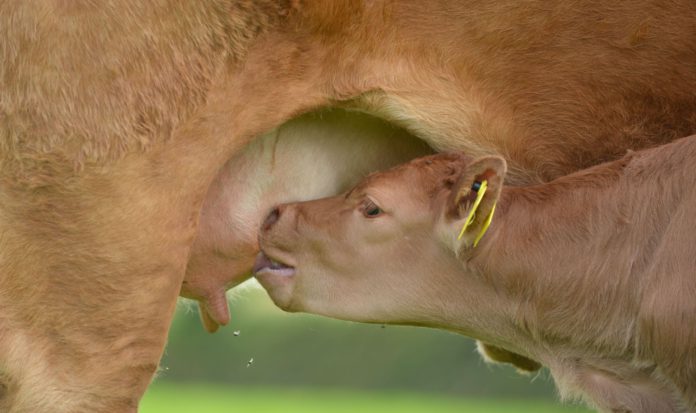Suckler farmers are set to receive a payment of €50 per cow-calf pair under the DAFM’s new National Beef Welfare Scheme (NBWS).
Minister for Agriculture, Food and the Marine, Charlie McConalogue, announced the opening of a new support measure for the suckler sector on Wednesday, August 2nd, 2023.
The National Beef Welfare Scheme (NBWS) is a support measure designed to enhance animal health and husbandry on suckler farms.
The scheme will support farmers in meal-feeding suckler calves in advance of and after weaning, and in testing for the presence of Infectious Bovine Rhinotracheitis (IBR) in their herds.
Both actions are mandatory for farmers who wish to participate in the scheme, which is separate from the SCEP.
Farmers who take part in the NBWS as well as the Suckler Carbon Efficiency Programme (SCEP), can earn up to €200/cow-calf pair, according to the DAFM.
Actions
Participants must introduce meal feeding for a period of four weeks pre-weaning and two weeks post-weaning to reduce calf stress at weaning time.
Farmers will be paid €35 per eligible calf up to a maximum of 40 calves.
Farmers must also get their herd tested for IBR by engaging a veterinarian to select, blood sample and test up to twenty animals for IBR antibodies.
Where a herd has twenty or more bovines, twenty must be tested. If a herd has less than twenty bovines, then all must be tested.
The scheme incentivises farmers to conduct a snapshot test of their herd, to gauge its prevalence in the national herd.
Farmers will be paid up to €300 per herd, depending on the number of animals tested for IBR.
What is IBR?
IBR is a viral disease of cattle that is mainly associated with pneumonia and death but can also result in reproductive losses, particularly abortions.
Infection is common in Irish beef and dairy herds, contributing to reductions in their economic, environmental, and social sustainability.
The economic impact of the disease is estimated to be more than €100 million per annum, the DAFM outlined.
Addressing IBR at a national level is part of the overall contribution of improved animal health identified within the Agricultural Efficiency MACC published recently by Teagasc.
The IBR measure within the National Beef Welfare Scheme will provide each participant with information on the presence and extent of infection within their herd, or alternatively, evidence of the herd being potentially free of infection.
This information will provide a solid basis for further discussion with their veterinary practitioner on developing a tailored approach to IBR within their herd health plan, including review and modification, as necessary, of current control measures including biosecurity and vaccination.
How to apply
Applications must be lodged online through agfood.ie with a closing date of September 12th, 2023.
There is no facility for late applications because scheme actions must be completed before November 1st, 2023, to allow for payments to participants to issue in mid-December 2023.
The NBWS is funded from a once-off 2023 allocation to the Department of Agriculture, Food and Marine from the Brexit Adjustment Reserve provided to offset some of the negative impacts of Brexit on the beef sector.





